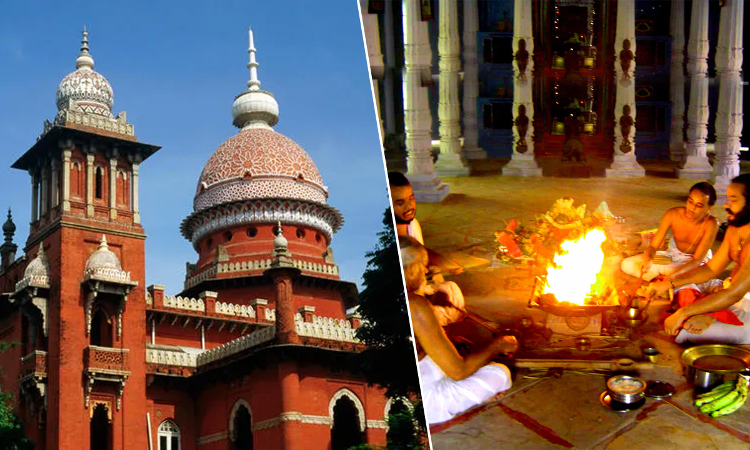'Agamas Will Govern' : Madras High Court Exempts Archakas In Temples Constructed As Per Agamas From TN Govt Rules 2020
Upasana Sajeev
22 Aug 2022 6:23 PM IST

The Court however ruled that the Rules will apply to temples which are not constructed as per agamas.
Next Story


